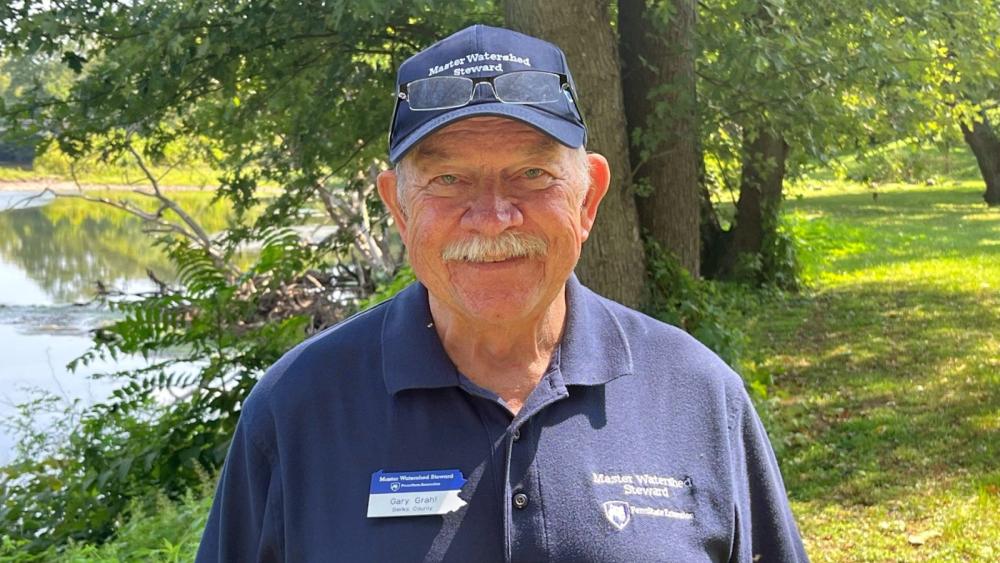The volunteers conduct monthly water testing and analysis at a variety of sites, including Nolde Forest State Park. Water quality testing involves monitoring the alkalinity, dissolved oxygen, nitrates, pH and water transparency at sites, as well as sampling the macroinvertebrate, or water bug, population. The group has begun planting riparian buffers, areas adjacent to a body of water with native trees and shrubs. These buffers are beneficial for filtering runoff, decreasing erosion and reducing stormwater effects.
Through his work as a watershed steward, Grahl also obtained additional training to become part of Extension’s Master Well Owner Network in 2022. Similar to the watershed program, the Master Well Owner Network is a statewide initiative that trains volunteers to educate rural homeowners on the management of private water wells.
According to Penn State Extension, some 3 million Pennsylvanians rely on more than 1 million private water wells that serve farms and rural homes in the state. Owners are responsible for ensuring the water quality of their systems, but many lack the knowledge to manage these supplies properly. Research has shown that more than half of private water systems in the commonwealth fail to meet one or more drinking water standards.
“I’m a resident of a private well neighborhood,” Grahl added. “The Master Well Owner Network training enabled and inspired me to get several of my neighbors to take an active interest in the health of their families and their wells. It’s not easy to get people to pay attention to something that’s in the background noise of life. The program helps us volunteers to cut through the noise.”
Neumaier describes Grahl as knowledgeable and committed.
“Gary’s insightful at informational events, helps monitor a local water quality data logger, participates in water quality testing, and has undergone additional training to become a member of the Master Well Owner Network,” he said. “He’s a pleasure to work with and a valuable asset to the program.”
To anyone considering joining a local Master Watershed Steward program, Grahl said, “Come on in, the water’s great!”
The Penn State Master Watershed Steward program provides extensive training in watershed management to volunteers who, in return, educate the community about watershed stewardship based on university research and recommendations. The program was established to strengthen local capacity for management and protection of watersheds, streams and rivers by educating and empowering volunteers across the commonwealth.
Anyone interested in becoming a Master Watershed Steward can learn more at the program’s website.

